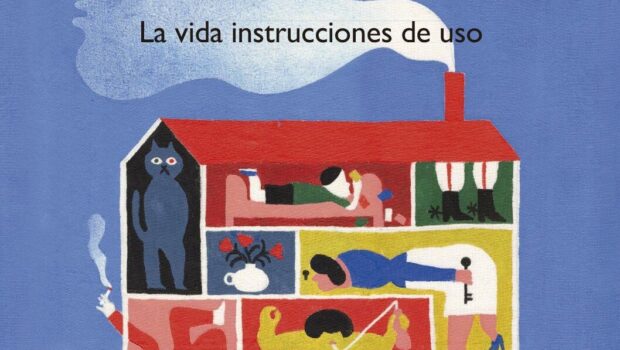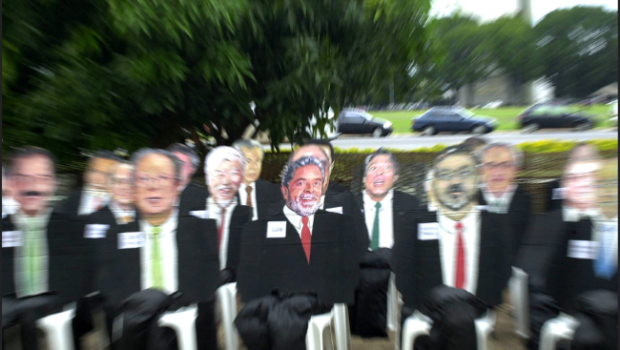Democratic Boredom
Tedio democrático
Yvon Grenier
When artists and writers find inspiration in the realm of politics, they are generally enthralled by fierce charismatic leaders and by dramatic or tragic episodes of history. What really turns them on is purificatory violence, which they typically find in wars and, most of all, in revolutions. As Octavio Paz wrote: “From Coleridge to Mayakovski, Revolution has been the great Goddess, the eternally beloved One and the magnificent Whore of poets and novelists.” Paz also proclaimed that “Revolution has been the public religion of modernity, whereas poetry has been its private religion.” Poetry, cornerstone of the human experience for Paz, rhymes with revolution—not with the ordinary politics of constitutional democracy. And indeed, we can hardly imagine, say, a masterpiece such as the painting La liberté guidant le peuple by Eugène Delacroix, commemorating, rather than the July Revolution, French citizens (that is to say, adult males who pay taxes) casting their votes for the legislative assembly; or Siqueiros’ monumental La marcha de la humanidad featuring numerous square metres of pigments to the memorable political reform of 1964.
In other words, the alternative is between the potentially destructive but exhilarating politics of utopias, or its rather dull substitute: pragmatic politics. This conjures up memories of Goncharov’s famous novel Oblomov (1849), in which Oblomov is faced with a similar alternative, in the form of two possible fiancées, and nonchalantly opt for the second. This fiction gave birth to a new syndrome, Oblomovism, which Lenin reviled as a disorder of the Russian soul that causes aversion to risk, mediocre autosatisfaction and low self-esteem. In the capitalist democracies of our time, Oblomovism is seemingly a widespread phenomenon. The literature on political participation indicates that political apathy, epitomized by low electoral turnout, reflects less a rejection of the status quo than a cosy and vague indifference, if sometimes coated with shallow cynicism. The pursuit of happiness takes place in the private and individual sphere, and sometimes in the private sphere of politics as well (as character María del Rosario Galván avers in Carlos Fuentes’ La silla del Águila: “politics is private passions channelled in public activities”). Politics, including postmaterialist politics, is losing the competition for the motivation and seduction of a fairly content citizen-consumer. This citizen is not deficient in ambition or ability to handle change; simply, s/he sees no compelling reasons to seek fundamental political changes.
Following a period of transition that was both dramatic and pregnant with promises of rebirth, “consolidating” democracies typically experience, often for the very first time, how mundane and ordinary political life is in a democracy. It is not difficult to draw parallels with the post-revolutionary situations described by sociologist Max Weber in his famous conference Politik als Beruf (Politics as vocation) in 1919. In a new democracy, politicians (often recycled officials of the old regime) devote their energy to learning the new rules of the political game, the who gets what, when and how. Debates of ideas seem to fade in the background, while fierce competition for access to resources and power rages at all levels. And when appetite for ideas lingers, as in Central Europe for instance, it frequently manifests itself as nostalgia, if not for the old regime, at least for a radical, tragic and messianic political ambiance.
In fact, democracy always brims with a healthy dose of political boredom, essentially because it proscribed the victory of one particular agenda, beyond the minimal absence of dissent on the viability of the democratic mechanic itself. It supposes a balancing act between different definitions of the good society, as well as the peaceful resolution of conflicts that may emerge. Furthermore, without illustrious victors or romantic losers, democracy produces what could be called a vast middle class of happiness, with lukewarm citizens easily glossed over or ridiculed by the philosophers of history, the muralists and the epic poets. The democratic ideal is a utopia (u topos: a place that does not exist), but day-to-day democracy is not, because the impossibility of total victory or “final solution” forces actors to seek success in the pursuit of limited and achievable goals.
The great challenge of democracies in this new century will be to strive for advances in living standards with ideas and policies that are pragmatic, tolerant, and prudent. Which is to say, somewhat boring (from an utopian perspective), but. . . hopefully not too much! It is imperative to combat anomy and apathy with a new awakening to the politics of serenity and reason. This is arguably the only way to reconcile the ethic of conviction with the ethic of responsibility. Again, Octavio Paz gives us a useful hint: “Criticism of progress is a signal, a promise of other changes.” He refrains from taking his argument to its logical conclusion: criticism of the ideology of progress is the seed to a new conception of progress, one that is viable and without “final solution”. Progress is dead; three cheers for Progress! Inventing the New Man is not difficult: it is impossible. Conversely, it is incredibly difficult but feasible to improve education, public health, the environment and the judicial system, or to reduce poverty and inequalities.
But I am getting too excited here . . .
NOTE: A good example of a boring country: Canada. A vast suburb of the USA, prosperous and with high level of human development; without much sound and fury, but comfortable and civilized. A country that is liberal, progressist and conservative, with heaps of conceited modesty. . . Altogether, a good illustration of what democratic tedium has to offer.
—The author lives peacefully in the forest of Nova Scotia, Canada.
Cuando los artistas y escritores buscan como fuente de inspiración el mundo de la política, generalmente se animan frente a los líderes carismáticos y asesinos, los episodios dramáticos y las tragedias, es decir, ante la “Historia con su gran hacha” (George Pérec). La febrilidad se aviva gracias a la violencia purificadora, esto es, con las guerras y, sobre todo, frente al drama de las revoluciones. Decía Octavio Paz: “De Coleridge a Mayakovski, la Revolución ha sido la gran Diosa, la Amada eterna y la gran Puta de poetas y novelistas”. El arte político moderno es el heredero directo del arte “político” medieval, con su temática maniqueísta y utópica. También afirmó el Nobel mexicano que “La religión pública de la modernidad ha sido la Revolución, y la poesía, su religión privada”. La poesía, médula de la experiencia humana para Paz, se ayunta con la revolución (ambos revelaciones): no con manifestaciones menores de la política en tanto fría mecánica representativa y constitucional. Difícilmente imaginamos La liberté guidant le peuple de Eugène Delacroix exhibiendo no la Revolución de Julio sino a… ciudadanos franceses (claro: hombres que pagan impuestos) votando por la primera asamblea legislativa de la Monarquía de Julio. O nos representamos una obra como La marcha de la humanidad de Siqueiros, dedicando metros cuadrados de pigmentos a la memorable reforma política de 1964.
En otras palabras, hay dos políticas: por un lado, la política como utopía y sacrificio y, por el otro, la política pragmática y pacífica. La primera es seductora, apasionante, pero a menudo destructora; la segunda es menos encantadora pero más sensata. Recordamos que en la famosa novela de Goncharov Oblomov (1849), los azares de la vida ofrecen a Oblomov más o menos estas dos mismas opciones, en la forma de dos posibles fiancées, y que el perezoso aristócrata escoge la segunda, dando nacimiento al Oblomovismo, un síndrome condenado varias veces por Lenin como la marca de la aversión al riesgo, la autosatisfacción mediocre, y el bajo nivel de self-esteem. En las democracias capitalistas de hoy, el oblomovismo político parece generalizado. Los estudios muestran que la apatía política, expresada en un creciente abstensionismo electoral, representa menos un rechazo al statu quo que una indiferencia cómoda y distraída, a veces salpicada por un cinismo bastante superficial. La pursuit of happiness tiene lugar en el dominio individual y privado, y a veces en el campo privado de la política (dice el personaje María del Rosario Galván en La silla del Águila de Carlos Fuentes: “la política es la actuación pública de pasiones privadas”). La política, incluso la posmaterialista enfocada a temas de calidad de vida, pierde la batalla por la estimulación y la seducción de un ciudadanoconsumidor bastante complacido. No le falta ambición o capacidad de cambio: le faltan buenas razones para ambicionar las transformaciones fundamentales en el campo político porque éstas no son muy deseables o alcanzables.
Los países en fase temprana de consolidación de la democracia experimentan, a menudo por primera vez, lo ordinario de la democracia, después de una gestación ardua pero febril y llena de promesas. No es difícil trazar paralelos con las situaciones posrevolucionarias típicamente descritas por el sociólogo Max Weber en su famosa conferencia Politik als Beruf (Política como vocación) de 1919. En la joven democracia, los hombres y mujeres políticos (con frecuencia antiguos personajes reciclados…) dedican su energía al aprendizaje de las nuevas reglas del juego, a who gets what, when and how. Desaparecen los debates de ideas y en su lugar florecen las contiendas sobre el acceso a los recursos, la competencia a corto plazo por el poder en todos los niveles. O cuando no se esfuman dichos debates —pensemos en los países de Europa Central— emergen las ideas radicales, nostálgicas si no del antiguo régimen al menos de un ambiente revolucionario, trágico y mesiánico.
En realidad, la democracia llega siempre con una dosis sana de aburrimiento, esencialmente porque su significado no está nunca supeditado al triunfo de una Idea, más allá de la ausencia de disenso sobre la viabilidad de los mecanismos democráticos. La democracia implica una búsqueda del equilibrio negociado entre varias agendas y la solución pacífica de sus conflictos. Además, sin ilustres ganadores o hechizados perdedores románticos, la democracia produce lo que podríamos llamar una vasta capa media de alegría, con tibios ciudadanos sin muchos atributos desde las perspectivas del filosofo de la historia, del muralista o del poeta épico. El ideal democrático es utópico (u topos: lugar inalcanzable), pero la democracia nunca lo es, porque la imposibilidad de encontrar una victoria total o “solución final” obliga a los actores a buscar el éxito en conquistas limitadas y puntuales.
El desafío de las democracias en el siglo XXI será la gestión de propósitos para mejorar la vida mediante objetivos pragmáticos, tolerantes y prudentes, es decir, un poco aburridos desde una perspectiva utópica pero… Hay que combatir la apatía y la anomia con un nuevo tipo de política: la política con ecuanimidad y razón. Quizás ésta constituye la única manera de reconciliar la ética de convicción con la ética de responsabilidad. Otra vez Paz nos muestra un camino: “La crítica del progreso es un portento, una promesa de otros cambios”. Teme la conclusión lógica: la crítica de la ideología del progreso es la semilla de un nuevo tipo de progreso, anti-utópico y sin solución final, viable. ¡El progreso ha muerto, viva el progreso! La creación del Hombre Nuevo no es difícil: es una tarea imposible. En cambio, el mejoramiento de la educación y la salud, del medio ambiente y el sistema judicial, la reducción de la pobreza y de las desigualdades, son tareas dificilísimas, pero realizables.
Pero me estoy emocionando demasiado…
NOTA: Un buen ejemplo de un país aburrido: Canadá. Vasto suburbio de los EEUU, próspero y con alto nivel de desarrollo humano; sin mucho ruido y furia, pero cómodo y civilizado. Un país liberal, progresista y conservador, con una modestia vanidosa… En fin, un buen ejemplo de lo que el aburrimiento democrático puede ofrecer.
—El autor vive tranquilo en un bosque de Nueva Escocia, Canadá.










